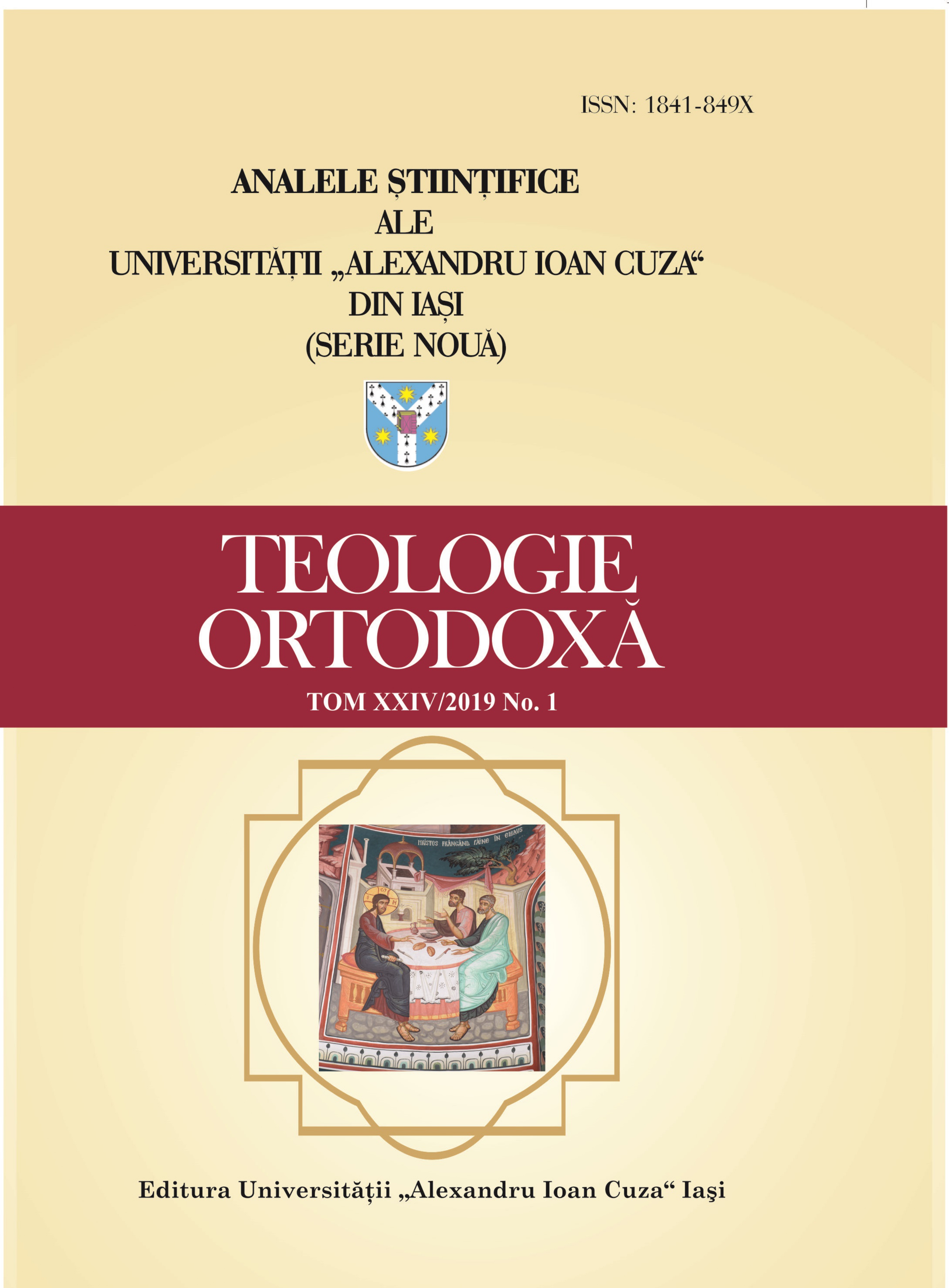Vasile CRISTESCU - Dogmas as forms of rejection of sectarian thinking in theology
Vasile CRISTESCU
Associate Prof. PhD. Faculty of Orthodox Theology, Alexandru Ioan Cuza University of Iaşi, ROMANIA
Abstract:
As expressions of the revealed truth, the dogmas reflect in their structure the communion of the Holy Trinity, made accessible to men through the Incarnation of the Son of God. They show Christ in His saving work to which people participate through the work of the Holy Spirit. Through the Holy Spirit, the revealed truth is known and lived in the life of the Church in its intensive aspect. By denying the personal structure of the Holy Trinity, sectarian thinking rationalizes the truth revealed and ignores its antinomic character. God remains an impersonal divine essence in which Persons are absorbed, becoming a simple name. By this He is relativized as Absolute, faith becoming just the expression of an individualist sentimentality that can not lead to salvation. The revealed truth loses its supernatural character, being conceptualized, reduced to a simple human understanding. In sectarian thinking, God is sought by men according to their subjectivist and reductionist orientations. In their inexhaustible structure, dogmas are the work of the Holy Spirit in the Church to lead believers to the highest acquisition of life in Christ, that is to say, the victory of sobornicity over individualism.
Keywords:
person, communion, dogma, apofatism, catholicity, individualism
Bibliography:
- Aurelius Augustinus. 1865. In psalmos 68, Sermo 2, 6, PL XXXVI.
- Berdiaev, N. 1992. The meaning of creation, translated by Anca Oroveanu. Bucharest.
- Ciobotea, Pr. Prof. Dr. Dan-Ilie. 1991. “The longing for the undivided Church or the mysterious and irresistible appeal of the Holy Trinity”, în Ortodoxia, XXXIV.
- Clement, O. 1963. “Ecclesiologie orthodoxe et dialogue oecumenique”, în Contacts, nr. 42.
- David, Deacon P.I. 1987. Christian guide to knowing and defending the right faith in the face of sectarian proselytism. Arad.
- Ebeling, G. 1964. “Wort Gottes und Tradition”, în Kirche und Konfession, 7, Göttingen.
- Gaspar, H.; J. Muller, F. Valentin hrsg. 1990. Lexicon der Sekten, Sondergruppen und Weltanschauungen
- Lossky, Vl. 1991. The Mystical Theology of the Eastern Church, translation into Romanian by Priest Vasile Răducă. Bucharest
- Rahner, K; Lehman, K. 1965. “Kerygma und Dogma”, în Mysterium salutis, Band I, Koln
- St. Athanasius the Great. 1857. Ad Serapionem, I, PG XXVI
- St. Athanasius the Great. 1857. Contra Arianos, I, PG XXVI
- St. Athanasius the Great. 1857. De incarnatione et contra arianos, 8, PG XXVI.
- St. Basil the Great. 1857. About the Holy Spirit, XXVII, Migne, PG XXXII.
- St. Cyril of Alexandria. 1992. “Jamb”, translation into Romanian by Priest Professor Dr. D. Stăniloae, în the collection Parents and Church Writers, volume 39, Bucharest.
- St. Cyril of Jerusalem. 1886. Baptismal catechesis, IV, 17, PG XXXIII, 467 B.
- St. Gregory of Nazianz. 1858. In sanctum baptisma, or. XL, 41, PG XXXVI.
- St. Gregory of Nazianz. 1862. Poems about oneself, I, PG XXXVII
- St. Gregory of Nazianz. 1947. “Second Word about God (Theological)”, în The Five Words of God, I betray. by Pr Gh. Tilea and Daniel Barbu. Curtea de Arges.
- St. Gregory of Nyssa. 1863. De vita Moysis, PG XLIV.
- St. Ilarius of Pictavium. 1845. De Trinitate, IV, 20, PL X
- St. Irineus of Lyon. 1857. Adversus haeresis, 8, 1, PG VII.
- St. Maximus the Confessor. 1941. “Theological Heads,75, 76”, în Filocalia, vol. 2, translated into Romanian by Priest Professor Dr. D. Stăniloae. Sibiu.
- St. Maximus the Confessor. 1948. “Answers to Talasius, 10”, în Filocalia, vol. 3, translation by Priest Prof. D. Stăniloae. Sibiu.
- Stăniloae, Priest Professor Dr. D. 1978. Orthodox Dogmatic Theology, vol. 1. Bucharest
- Stăniloae, Priest Professor Dr. D. 1991a. “Dogmas, expressions of divine love”, în Ortodoxia, XLIII
- Stăniloae, Priest Professor Dr. D. 1991b. “Why are Orthodox?”, în Theology and Life, LXVII, nr. 4-8
- Stăniloae, Priest Professor Dr. D. 1992. “Christian and apostolic dogmas, the expressions of the highest good”, în Ortodoxia, XLIV

